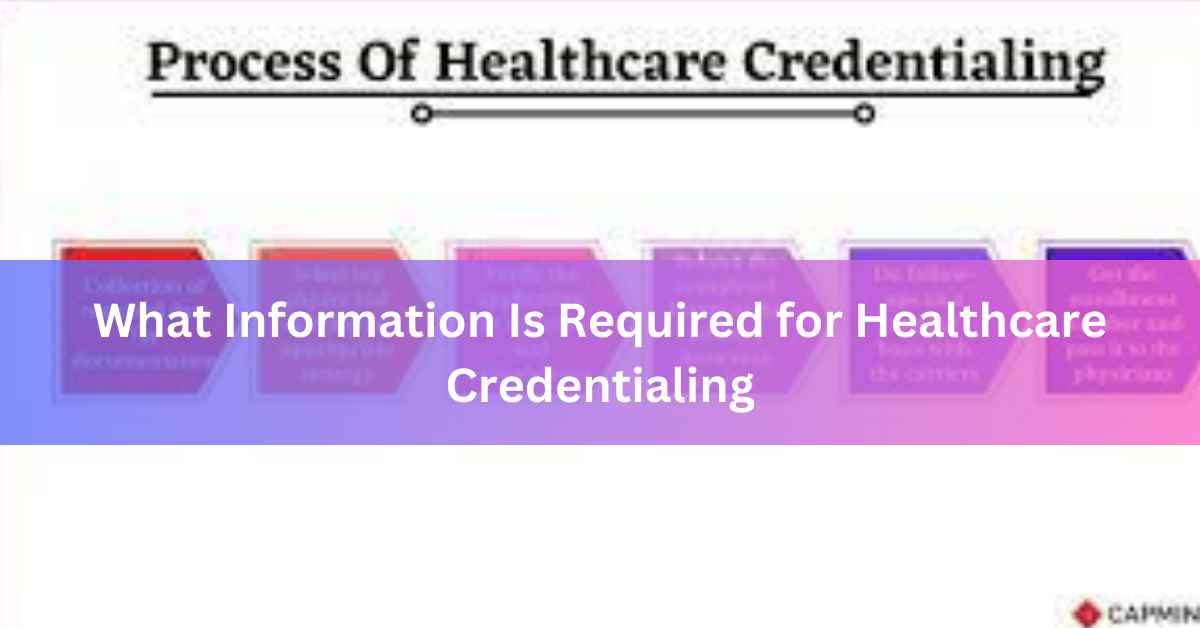What Information Is Required for Healthcare Credentialing?
Credentialing services can help insurance companies and healthcare facilities conduct the healthcare credentialing process to verify the competence and capabilities of healthcare professionals.
Its primary goal is to confirm that these professionals are equipped to provide safe, high-quality care to patients.
The exact requirements for healthcare credentialing may vary depending on the specific organization or state laws. Here are some elements that may be universally required:
Personal Identification
Credentialing services may ask for personal identification which may include basic details such as the healthcare provider’s full name, date of birth, and social security number.
This information is necessary to verify the provider’s identity and confirm their credentials and qualifications accurately match them.
It can help prevent cases of fraud or misrepresentation where an individual might attempt to practice under someone else’s credentials.
Education and Training
Education and training may include detailed information about the healthcare provider’s medical education, such as the institutions attended, degrees earned, and dates of graduation. It may also include any specialized training or continuing education courses undertaken.
This information can help verify the provider’s competency and qualifications. It confirms that the provider has undergone the necessary education and training to deliver safe, high-quality care.
A doctor may need to provide proof of their medical degree, their residency, and any additional fellowships or certifications they have earned. This can help the credentialing bodies to confirm their authenticity.
Licensure
Licensure in the healthcare credentialing process requires providers to provide copies of all active state medical licenses, controlled substance licenses, and DEA (Drug Enforcement Administration) certificates. Licensure can help confirm that the provider has met the regulatory requirements to practice medicine.
A surgeon practicing in Texas would need to show a valid Texas medical license during the credentialing process. This confirms they are legally allowed to perform surgeries in that state.
The need for licensure information goes beyond legality. It also verifies that the healthcare provider maintains good standing in their profession and adheres to the ethical and professional standards set by the licensing bodies.
Licensure can act as a safeguard, protecting patients from unqualified or unscrupulous providers and upholding the quality and integrity of healthcare services.
Work History
Work history includes a comprehensive record of the healthcare provider’s professional experiences. This may include previous and current places of employment, duration of service, job titles, roles, responsibilities, and reasons for leaving.
This information can provide a clear picture of the provider’s career progression, expertise, and professional conduct. If a physician has consistently held roles in pediatrics, this can validate their specialization in this area.
Any patterns of short-term employment or abrupt departures could raise red flags about potential issues. Work history plays a role in assessing a healthcare provider’s competence, commitment, and suitability for a role. This may then help promote the delivery of high-quality patient care.
Work With Reputable Credentialing Services
Healthcare credentialing might seem complex, but it’s a significant step in promoting patient care quality and safety. The information you provide during this process must be accurate and verifiable. To access accurate information, you can work with credentialing services.
Working with reputable credentialing services promotes an efficient and accurate process, minimizing errors that could delay healthcare delivery.




